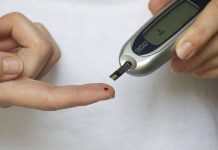Everyone has heard horror stories about hot flashes and cranky moods. These symptoms are associated with menopausal women and a phase in life many women dread. However, brain fog is also among the list of menopause symptoms. This article will discuss menopause and brain fog.
“Not all women experience brain fog among their menopause symptoms, but studies have shown that it’s common in women of menopausal age”
What is Brain Fog?
Brain fog is a term given to the mental lapses many menopausal women face. Common symptoms of brain fog are:
- Difficulty thinking clearly
- Trouble concentrating
- Forgetfulness
- Confusion

Not all women experience brain fog among their menopause symptoms, but studies have shown that it’s common in women of menopausal age (ages 45-55). According to a study by a professor at University of Vermont, as many as 60% of 200 women from ages 45-55 reported that they experienced brain fog. In that study, researchers used various testing to gauge men’s and women’s memory skills. MRI scans were also used to track brain activity as test subjects performed memory tasks.
Why Brain Fog Occurs During Menopause
One theory is that menopausal women produce lower levels of estrogen. Estradiol, which is made in the ovaries, is one form of estrogen. Women with a decreased amount of estradiol tended to do worse on memory tests. Thus, a reduction in estradiol productions seems to be correlated with changes in brain functioning. However, one group of test subjects scored well on brain activity tests despite their low levels of estradiol. Researchers are currently working to learn more about estrogen and how it impacts menopausal women.
Natural Remedies to Prevent or Treat Brain Fog
There is no surefire way to prevent menopausal brain fog. However, there are some things you can do to minimize your chances of getting it. For instance, getting plenty of sleep will allow your mind and body to rest. If you suffer from insomnia, try deep breathing techniques or yoga to help you induce relaxation.
“Cardiovascular exercise might also help with memory issues. Getting a cardio workout five days per week is recommended.”
The food you eat can also help support a healthy brain. The Mediterranean diet is often recommended to support brain health. Suggested foods include fish, seafood, nuts and seeds. Veggies, fruit and whole grains are also recommended.

In addition to sleeping well and eating a balanced diet, you can also do certain activities to support brain health. Reading books, completing brain teaser exercises and doing crossword puzzles might help. You could also try writing and making to-do lists to stay cognizant of what you must achieve each day.
Cardiovascular exercise might also help with memory issues. Getting a cardio workout five days per week is recommended. Such exercises include walking, running and cycling.
Because prescription drugs can be expensive and have many negative effects, people often turn to natural remedies for illnesses. Some women get relief from brain fog by taking herbal supplements or herbs. One popular herb is an adaptogenic herb called Rhodiola Rosea, which is believed to aid with producing compounds in the brain. Vitamin B12 and vitamin D can also be taken to help support brain health.
Dr. Vincent Pedre, an author and health expert, has spoken about the health effects of Omega-3. According to Dr. Pedre, Omega-3 boosts the number of neural connections in patients with memory loss.
“Brain fog, while common, is typically not serious enough to pose a health threat.”
When to See Your Doctor

A bit of forgetfulness is usually not cause for alarm. However, if you have other symptoms in addition to brain fog, consult a physician. Other symptoms along with brain fog could mean that you have another medical condition. For instance, people with ADHD and dementia also report having brain fog. Consulting a physician could help determine if you have another condition requiring treatment. If brain fog worsens or comes on suddenly, see a doctor. You should also see a doctor if brain fog begins to interfere with everyday activities.
Brain fog, while common, is typically not serious enough to pose a health threat. There are several ways to help prevent brain fog. For instance, eating a healthy diet, getting regular cardiovascular exercise and adequate sleep could help. However, if you develop brain fog and are concerned about it, consult a physician to learn more about menopause and brain fog.
Sources & References:
https://www.webmd.com/menopause/news/20161012/more-evidence-menopause-brain-fog-is-real#1
https://www.prevention.com/health/sleep-energy/a25643207/brain-fog-cures/
https://www.healthline.com/health/menopause/menopause-brain-fog#prevention





















